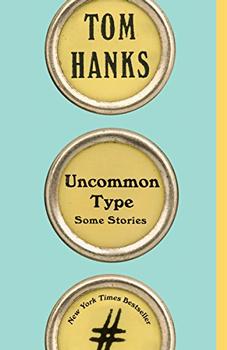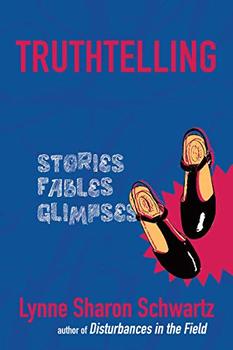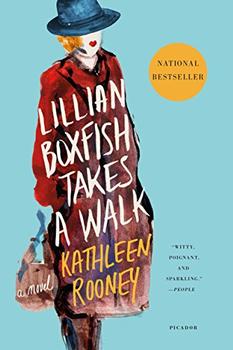Summary | Excerpt | Reviews | Beyond the book | Read-Alikes | Genres & Themes | Author Bio

Some Stories
by Tom HanksMy undergraduate fiction professor had a refrain he repeated so often it annoyed us to no end. "Only trouble is interesting," he would say, insistent that we never be too nice to our main characters. I had a heated debate with him once over the pervasiveness of "unhappy endings" in the short stories he assigned. I didn't understand why fiction had to always be so depressing. People were always getting killed, or divorced, or going through awful circumstances. "You can have happy endings," he told me, "but they have to be qualified. There's always more trouble around the corner."
Thinking back on it now, I know that he was teaching us how to write well. And the stories that have stuck with me are the ones I first read in his class. I remember with a vivid fierceness the unsettled outlaw at the end of Flannery O'Connor's "A Good Man Is Hard to Find," the sob of the grieving father at the end of Andre Dubus' "Killings," the murdered author remembering his childhood as his life flashes before his memory in Tobias Wolff's "A Bullet in the Brain." I haven't read these stories in years, and yet their impact resonates.
Reading the new short story collection from Tom Hanks (yes, that Tom Hanks), was a different experience. After I finished them, most of Hank's stories flitted from my brain like a light balloon. In seventeen stories, Hanks — whose squeaky-clean image as "America's Dad" has itself become as American as apple pie — presents a world as neatly packaged and free from real-world troubles as the average Hollywood rom-com. In the opening story, "Three Exhausting Weeks," which you can read in full at The Guardian, a tired narrator relates his tribulations as his girlfriend attempts to force him into an exercise routine and social life he can't keep up with. In "These Are the Meditations of My Heart," a young woman buys and renovates an old typewriter. In "Steve Wong is Perfect," a young man's bowling streak captivates an entire town.
These people seem to float through life without any real concern beyond their own upper-middle-class troubles. Each story has so few consequences, so little stakes, that it's difficult at first to find much to appreciate in them. But about halfway through the collection, I found myself enjoying them more and more. Completely unrelated, I happened to re-watch You've Got Mail, Hanks' late-90s hit with Meg Ryan. I discovered that it really is impossible not to like the guy. Even when playing a cutthroat bookstore magnate, he's affable and charming. Hanks' fiction occupies the same outlook. His characters are rarely unlikeable, and they all discover that with some hard work and pluck, they'll make it through in the end.
Hanks proves to be an adequate, if raw, prose stylist. He's at his best when exploring territory he knows well such as history, or when his stories are so imaginative and out there that they border on the fantastic (In "The Past Is Important to Us," my favorite story in the collection, a wealthy time-traveling tourist falls in love with a young woman at the 1939 New York City World's Fair). Each story contains the appearance of a typewriter (Hanks is an avid collector and enthusiast), which binds the stories together thematically. It feels like a gimmick, and it is. But Hanks' affection for the machines comes through, and before too long, you hardly notice they're there.
Whenever celebrities think they can write fiction, writers tend to roll their eyes — do we ever pretend that their job is so easy we can just "pick it up?" But Hanks doesn't seem to be someone who's doing this just to prove he can. On every page, his earnestness is felt. This is the short story collection of a new and burgeoning writer, as uneven and unsure as all debuts can be. But it's also the voice of one of America's most beloved actors, a growing literary talent, and a man who is clearly not content to explore just one aspect of the human condition.
![]() This review was originally published in The BookBrowse Review in November 2017, and has been updated for the
September 2018 edition.
Click here to go to this issue.
This review was originally published in The BookBrowse Review in November 2017, and has been updated for the
September 2018 edition.
Click here to go to this issue.

If you liked Uncommon Type, try these:

by Lynne Schwartz
Published 2021
With her new dazzling collection of short fiction, Schwartz has propelled herself to the front rank of inventive short story writers such as George Saunders and David Means.

by Kathleen Rooney
Published 2018
A love letter to city life, however shiny or sleazy, Lillian Boxfish Takes a Walk by Kathleen Rooney paints a portrait of a remarkable woman across the canvas of a changing America: from the Jazz Age to the onset of the AIDS epidemic; the Great Depression to the birth of hip-hop.
Your guide toexceptional books
BookBrowse seeks out and recommends the best in contemporary fiction and nonfiction—books that not only engage and entertain but also deepen our understanding of ourselves and the world around us.